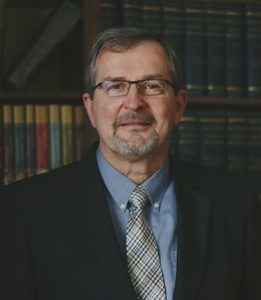
Learning to Preach from the Reformers
Just as the gospel of justification by faith in Christ alone was the central message of the Reformation, so the preaching of the Word was central to the work of the Reformers. Like the Apostles, the Reformers gave themselves to the ministry of the Word. Preaching came to be recognized early in the Reformation as the primary task of the church’s ministers, dethroning the celebration of the Mass in the process. Reformed preachers and pastors were often designated simply as “minister of the Word” or “preacher of the gospel.” The entire office of the ministry came to be defined by the act of preaching.
The Reformation was born out of and gave birth to God-honoring, Scripture-rooted gospel proclamation. So what can we learn today from the Reformers on this vital subject of preaching? Just as the gospel of justification by faith in Christ alone was the central message of the Reformation, so the preaching of the Word was central to the work of the Reformers. Share on X
A High View of the Preaching Office
First, the Reformers embraced a high view of preaching. John Calvin calls the preaching office “the most excellent of all things,” commended by God that it might be held in the highest esteem in the church. “There is nothing more notable or glorious in the church than the ministry of the gospel,” he concludes.[1] In commenting on Isaiah 55:11, he says, “The Word goeth out of the mouth of God in such a manner that it likewise goeth out of the mouth of men; for God does not speak openly from heaven but employs men as his instruments.”[2]
This stress on preaching moved Calvin to be active on several fronts in Geneva, where he labored for twenty-six years. He preached from the New Testament on Sunday mornings, the Psalms on Sunday afternoons, and the Old Testament at 6 a.m. weekday services. Following this schedule during his last period of ministry in Geneva from 1541 to 1564, Calvin preached nearly four thousand sermons, more than 170 a year. On his deathbed, he spoke of his preaching as more significant than his writings.[3] Do you place such a high premium on the weekly task of preaching the Word?
A Pervasive Exaltation of Christ
Second, the Reformers sought to lift up or exalt Christ in all of their preaching. The great Reformer of Basel, Johannes Oecolampadius, viewed preaching the Word as the proclamation of Christ. This arose from his view of the Scriptures. He wrote, “Because the Word of God is inspired by the Holy Spirit, I am unable not to affirm that in all places the Spirit of the Scriptures has regard for Christ Jesus in purpose, goal, and method.” Therefore, the first and fundamental act of the student and preacher of Scripture is to come to the Bible seeking Christ: “The sense of Scripture does not come to any, except to those who also seek Christ and to whom Christ reveals Himself.”[4]
The Reformers focused on God’s living Word, Jesus Christ, made known in God’s written Word, the Bible. The great theme and controlling contour of their preaching was Jesus Christ, for he is the supreme focus, substance, and purpose of God’s revelation. Therefore, like Paul, they determined as preachers “not to know anything . . . save Jesus Christ, and him crucified” (1 Cor. 2:2).
An Experiential, Pastoral Intention
The Reformers, third, did not see the preacher as someone merely explaining theological concepts, but as a shepherd caring for his sheep. The preacher’s aim was to apply biblical truth to the hearts and lives of people whom they knew by name. Theodore Beza, Calvin’s successor, wrote: “But pastors must go further [than teaching doctrine]. For, in preaching, they apply the doctrine to the needs of the church, to teach, to rebuke, to console and exhort in public and in private, according to the need. . . . They also make public prayer. In brief, they watch day and night over their flock whom they feed in public and in private with the Word of life (Acts 20:20).”[5]
These ministers loved their people and that love permeated all of their preaching. They sought the salvation, sanctification, and comfort of their people through the application of the Word to the heart. Preaching must flow from the heart of the preacher and must be applied to the hearts of the hearers. In this way, the Reformers teach us of the necessity of addressing the heart in true preaching.
The Pursuit of Holiness
Fourth, the Reformers’ goal in preaching was to see the people of God adorned with the beauty of holiness. From its earliest roots, the Reformed movement was a pursuit of godliness in personal, church, and national life. Building on the solid foundation of justification by faith alone, the Reformers labored together under the Spirit to construct a community of holiness by grace alone, for the glory of God alone. They were not mere orators and educators. Calvin wrote, “Indeed, we shall not say that, properly speaking, God is known where there is no religion or piety.”[6] The sole purpose for which he wrote his great work of theology, the Institutes, was that “those who are touched with any zeal for religion might be shaped to true godliness.”[7] Godliness or piety (Calvin’s word, from the Latin pietas) is reverential love for God arising from God’s grace and aiming to please him in all things.[8]
Preaching plays a crucial role in the growth of the church in godliness. Paul writes that the ascended Lord Jesus gives “pastors and teachers . . . for the edifying of the body of Christ” until every Christian reaches maturity, growing “unto a perfect man, unto the measure of the stature of the fulness of Christ” (Eph. 4:11–13). Calvin observed that God desires His people “to grow up into manhood” through “the preaching of the heavenly doctrine” by “the pastors.”[9] For this reason, the cultivation of true piety in God’s people ought to be one of the chief aims of all true preaching.
Conclusion
The preaching of the Reformers leads us who are preachers in the 21st century to ask ourselves: “Is my preaching rooted in the glorious truths of Christ rediscovered in the Reformation? Do I know what those truths are? Do I faithfully make them known, even in the face of indifference and hostility?” Furthermore: “Do I intend my preaching to be a sharp instrument by which the Lord shapes a holy people for His glory? Am I guiding the church to a robust and full-orbed spirituality? Or is my preaching aiming at something else?” Too often preachers aim at far less worthy goals, such as:
- attracting and entertaining a crowd of people;
- seeking superficial decisions for Christ to count as “conversions”;
- promoting a social or political agenda without a heavenly focus;
- generating emotion but not touching the heart with the truth; and
- building a “brand” of one’s own and securing influence.
Let us humble ourselves before the almighty God and seek by the blood of Jesus to have the sins of our preaching forgiven and our souls transformed. May God raise up an army of preachers whose consciences are captive to the Word of God, and whose lives are being transformed by the Spirit of Jesus Christ.
almighty God and seek by the blood of Jesus to have the sins of our preaching forgiven and our souls transformed. May God raise up an army of preachers whose consciences are captive to the Word of God, and whose lives are being transformed by the Spirit of Jesus Christ.
Endnotes
[1] John Calvin, Institutes of the Christian Religion, trans. Ford Lewis Battles, ed. John T. McNeill, Library of Christian Classics, vols. 20–21 (Philadelphia: Westminster, 1960), 4.3.3, hereafter, Institutes. Parts of this article are adapted from my Reformed Preaching: Preaching God’s Word from the Heart of the Preacher to the Heart of His People (Wheaton, Ill.: Crossway, 2018).
[2] John Calvin, Commentaries of Calvin, various translators and editors, 45 vols. (Edinburgh: Calvin Translation Society, 1846–1851; repr., 22 vols., Grand Rapids: Baker, 1979), Isa. 55:11.
[3] William Bouwsma, John Calvin: A Sixteenth-Century Portrait (New York: Oxford University Press, 1988), 29.
[4] Quoted in Diane Poythress, Reformer of Basel: The Life, Thought, and Influence of Johannes Oecolampadius (Grand Rapids: Reformation Heritage Books, 2011), 121.
[5] Theodore Beza, The Christian Faith (Lewes, U.K.: Focus Christian Ministries, 1992), 93.
[6] Institutes, 1.2.1.
[7] “Prefatory Address to King Francis I of France,” in Institutes, 9.
[8] Institutes, 1.2.1; see also “Calvin’s Catechism (1538),” in James T. Dennison Jr., Reformed Confessions of the Sixteenth and Seventeenth Centuries in English Translation, Volume 1, 1523–1552 (Grand Rapids: Reformation Heritage Books, 2008), 410.
[9] Institutes, 4.1.5.
Editor’s Note: This article has been adapted with permission from Joel R. Beeke, Reformed Preaching: Proclaiming God’s Word from the Heart of the Preacher to the Heart of His People (Wheaton, IL: Crossway, 2018).

